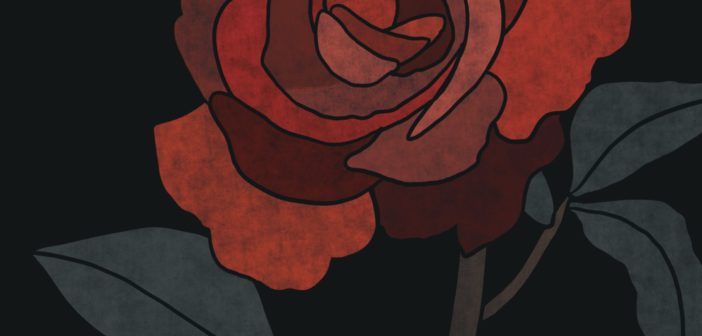Over a dreamy candlelit dinner with Becca Kufrin on the fourteenth season of “The Bachelorette,” Colton Underwood told Kufrin, and consequently the rest of “Bachelor Nation,” that he’d never had sex. Ultimately, this seemed to be the relationship’s undoing. Underwood was tearfully eliminated at the next rose ceremony after taking Kufrin on a visit to his hometown.
“I think part of living in a heterosexist, patriarchal culture is we value men for their experience,” said Visiting Professor Ann Dolinko. “And men are supposed to have a lot of experience because the idea is that they should be sexually in control.”
The following year, when Underwood was chosen as “The Bachelor,” fans were reminded of his deeply personal reveal almost every episode. The fascination grew, as host Chris Harrison delivered brutal lines like, “Will Colton find the love of his life? Or will he remain a virgin forever?” (As though the only choices in life are to have sex, or to not and be eternally doomed.)
The show’s promotional tagline was: “What does he have to lose?”
“That language itself reflects where we place the value,” said Dolinko. “Women have to save (their virginity) because their value is in their purity. Men have to lose it.”
No one seemed to understand how this conventionally attractive, twenty-something football player could have gone so many years without losing his virginity. During his heartfelt moment with Kufrin, Underwood shared that he spent so much of his life focusing on school, on work, on his NFL aspirations, that he neglected the part of him that longed for romance.
According to a 2011 study conducted by the Centers for Disease Control and Prevention, the average American man or woman will lose their virginity, narrowly defined by vaginal sexual intercourse (invalidating experiences of many sexually active LGBTQ people) at 17 years old. The study also found that, conservatively, less than 5% of men and women aged 25-29 identify as virgins.
“I feel like it’s kind of dangerous,” said Claire Coughlin, ‘21. “It’s almost like virginity is supposed to be for women, like we’re supposed to stay virgins until marriage, and men are expected to, have a ton of sex.”
Ashley Iaconetti, who appeared on season 19 of “The Bachelor” with Chris Soules, spoke candidly on the show about staying celibate. However, the discussion that followed wasn’t one of urgency, like it was with Underwood, but one of patience, virtue and purity.
“We’re taught through fairytales and rom-coms that what a woman and girl does is wait for her prince, for somebody to awaken her sexuality,” said Dolinko.
Similar to Underwood, however, was the need to define each participant by their inexperience.
“I remember there was a girl on Colton’s season who was like, ‘I haven’t had my first kiss yet,’” said Coughlin. “And her job, you know, when they have descriptions below their names, hers was, ‘‘never been kissed.’”
But even if this was an important conversation to have, as Colton has maintained since the show wrapped in 2019, what have we really learned about abstinence and its many complexities? And how does someone’s real-world experience compare to the way that sex is depicted on television?
“I think TV pushes an ideal,” said Coughlin. “When, in reality, it’s just not that serious. Virginity is a social construct.”
In the summer of 2019, according to Cosmopolitan, Miley Cyrus received backlash for repeating Coughlin’s exact sentiment on her Instagram. Followers were quick to point out that virginity was “in the Bible,” that it was plainly “biology.”
However, The World Health Organization insists that “virginity” isn’t a medical or scientific term at all, but rather one that has broader cultural, and often religious implications.
According to the WHO, feeding into the stress and importance placed on a woman’s virginity is, in fact, a form of gender discrimination.
“I think (the way we see virginity) will evolve,” said Dolinko. “But I only think it’ll evolve when we really challenge a patriarchal system that values women as sex objects.”
Maybe the media are moving in the right direction, departing from the lazy tropes from teen dramas like “One Tree Hill.” These dreamy universes often portray sex as a “rite of passage” or a “gift,” solely shared between a man and a woman, as said by Sociology Professor Laura Carpenter in her 2009 study. But what’s left?
“I think (these narratives) estrange women and men from mutually satisfying sexual relationships, because one thinks that they should be in charge and know what they’re doing and dominate, and the other has no idea what they like sexually and they don’t know their own body, and they’re taught to be passive and not express their desire and their wants and what makes them feel good,” said Dolinko.
Dolinko said that the less emphasis the media place on virginity and the more they place on actively understanding one’s own body, the better.
“You might have two people that don’t know how to communicate sexually,” said Dolinko. “And they don’t know then how to have intimacy. They know only how to engage in an act … but not have a mutually satisfying experience where they can communicate with their bodies and their minds.”

